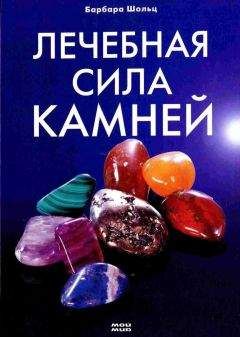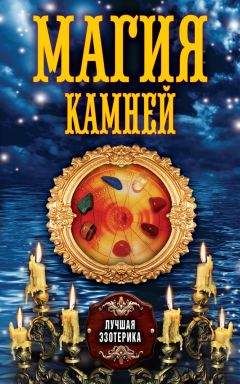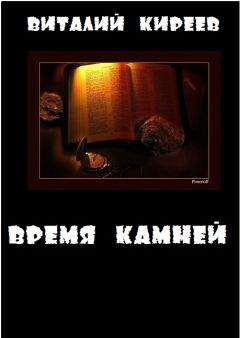Juliet Marillier - Hearts Blood
In the dream, I had no voice. I could not scream a protest, I could not say that the idea of marrying Cillian filled my heart with terror. I could not tell her that turning my back on my beloved craft meant betraying my father. But then, in the long, waking nightmare that had unfolded after Father’s death, I had not once spoken out. My voice had been muted by grief and by a numb refusal to accept that all I held dear had been suddenly snatched from me. Even now, I did not quite believe that in a single season the bright promise of my life had turned to ashes.
Now Ita and I were in a tiny cell with iron bolts on the door. It was bitterly cold; I was clad only in a shift of scratchy homespun. Ita was shaving my head with a big knife. You’ve run out of choices, Caitrin, you disobedient girl.You must go into the priory.You’ll have plenty of time there to consider the result of your folly. A nun’s gray habit was laid out across the pallet. On second thoughts, Ita’s dream voice said, we’ll do it this way. The floor of the cell opened under my feet. I fell, half-naked as I was, and a forest of bony hands stretched out to rake my flesh with long nails as I passed. A howling filled the air, a wretched, despairing noise. Slavering mouths surrounded me, sinking their pointed teeth deep into my arms, my legs, the tender parts of my body, until I felt the flow of hot blood all over me. You’re nothing! Nothing! A derisive, shrieking laugh. Down I fell, down, down, knowing that when I landed I would break in pieces . . . Sleep, whispered someone. Long sleep ...
I woke, heart hammering, skin damp with the sweat of terror. Where was I? It was pitch-dark and I was trembling with cold. An icy draft swept into the cell-like chamber where I lay. A cell . . . the priory, oh God, it hadn’t been a dream, it was true . . . No, I was in the inn at Whistling Tor, and I had kicked my blankets onto the floor while I slept. My bundle and writing box were beside me, the proof that at last I had taken control of my life and fled Market Cross.Tears filled my eyes as I reached for the blankets. It was all right. I was safe.The nightmare was over.
It had been worse than usual, perhaps thanks to Tomas and Orna’s tales, and I had no wish to lie down and close my eyes again. Besides, it was too cold to sleep. A clammy chill was seeping right into my bones. I huddled into the blankets and applied my mind to the dire situation I had brought on myself. I had no resources beyond my craft and my common sense, and even that had deserted me lately. I must think of tomorrow. How to get a ride when folk seldom visited Whistling Tor. How to pay for it with no funds.And the big one, the one that kept my belly churning with fear and my head racing to find solutions: how to stay one step ahead of pursuit.
My head began to turn in circles. My father lying pale and still on the workroom floor. Ita’s voice, always her voice, issuing decrees, giving orders, making things happen, too soon, much too soon, while shock and sorrow rendered me incapable of standing up for myself. And as soon as my sister was gone, the blows. Ita was a master of slaps and pinches. And Cillian ... Cillian had marked me. The bruises on my skin—blue, black, yellow, an angry patchwork—would fade. There were other hurts, deeper ones, that would be harder to lose. You did it, Caitrin, I reminded myself. You got up and walked out.
Dawn came at last, but I did not unbar my door until I heard folk moving about outside. While I discounted the horror tales of suppertime, my dream made me reluctant to venture out until the local people deemed it safe to go abroad. Just as I was removing the iron bar, Tomas came to knock on the door.
“There’s a fire on,” the innkeeper said. “Come through when you’re ready. I’ve got a bit of breakfast for you.”
“I can’t pay any more.”
“No extra charge, lass.You need something in your stomach.”
I could have wept. It seemed so long since I had been amongst kind people. Soon after, I was sitting at a table by the window of the inn, looking out as I worked my way through a platter of coarse bread and sausage.
The mist was clearing. I could see the houses of the settlement, and behind them a stretch of the makeshift fortification. Beyond that, the ground rose towards a wooded hill. At the very top, sections of a high stone wall could be glimpsed above the canopy of oaks and elms.Towers loomed.The place looked big, grand. Without a doubt, this was the fortress Tomas had mentioned, the one that housed the crooked, inept chieftain of Whistling Tor. Stone: that was unusual.The Normans built in stone. Our own chieftains constructed their fortresses of mud and wattle.This place was substantial. Situated as it was, strategically high above the surrounding terrain, it would make an excellent base for a regional commander, and I wondered if the Norman leaders knew about it. For such a prize they might well venture into the west.
The slopes below the wall were thick with vegetation. Birds were flying in and out. The tale of dangerous creatures in the woods had painted the ancient fort as grim and forbidding in my mind, but the green growth softened it.All the same, it looked set apart, lonely somehow; even without last night’s tales, I thought I would have sensed a sadness about the place.
Outside the window Tomas, an apron around his waist, was speaking to a man I had not seen last night, a large, square-jawed individual with knives at his belt and a heavy axe slung on his back. He had on a worn but well-cared-for leather breastplate over practical garments of wool; it was the garb of a warrior. His hair was more gray than fair, and hung to his shoulders in thick twisted locks. As he and Tomas entered a dispute of some kind, Orna came out carrying a bundle, which she more or less dropped at the stranger’s feet. She did not look at him or speak a word, just scurried back inside.The men’s conversation reached me through the open window.
“What about someone to help with the livestock, at least?” the visitor asked. “That boy you sent me didn’t even last two days.”
“They’re afraid, Magnus. You can’t expect folk to stay in that household of freaks, not to speak of what’s in the woods on every side. And it’s not as if your master pays them a fortune for their labors.”
“You know quite well that the most a lad or lass should expect for that kind of work is a bed and two square meals a day, with perhaps a little something to take home on feast days. We need help. It’s perfectly safe. Anluan’s folk don’t attack their own.”
“I can’t help you,” Tomas said flatly. “You might tell Lord Anluan that ordinary people are sick and tired of being harassed by those creatures in his woods, and they’re still wearier of his failure to do anything about that or about any of the misfortunes that have beset the region since his sorry ancestor unleashed hell in Whistling Tor.”
“Come on,Tomas.You know how things stand. Ask around the neighborhood for me, will you? I can’t manage without a lad to give me a hand, and we could do with a girl to help around the house as well. And there’s another thing. Anluan needs someone for a special job, over the summer. Someone who can read Latin and write. Write properly, I mean. Fast and accurate, that’s what he said.”
My heart began to race.
Tomas snorted in disbelief. “Wouldn’t you need a cleric for that?” he asked.“You won’t get any of them near Whistling Tor, the way things stand. You’re wasting your time.All right, I’ll ask. But you know what the answer will be.”
As I gathered my belongings, the visitor hefted the bundle onto his shoulder and headed off in the general direction of the fortified barrier. By the time Tomas came back in with a load of firewood, Magnus had disappeared from view.
“That man who was outside,” I said. “Magnus, was it? Did he say they needed a scribe up at the fortress?” I prayed that this was the gift it appeared to be: a remarkable opportunity of both hiding place and paid work.
“He did say that.” Tomas set down the wood and regarded me, hands on hips. “Someone who can read Latin.Why he asked me, I can’t imagine. It’s hard enough to find him a simple cowherd, let alone a scholar. Sounds like it’s a big job, whatever it is; could take the whole summer. I’ll tell you the truth, Caitrin.There’s not a soul in the region would agree to spend a season in that place, not for all the silver in Connacht. Not that it matters, since none of us can read anyway, Latin, Irish or anything else.”
“Who is Magnus, exactly? A servant? He works for the chieftain, Anluan, is that his name?”
“Steward, I suppose you could call Magnus. Been there since Irial’s time. Hired as a fighter; stayed on when Irial died. Magnus is a foreigner, one of the gallóglaigh. Doesn’t do much fighting now. More of a farmer and jack of all trades. I can’t imagine why he stays.”
“So there are ordinary folk living on the hill, not just these . . . presences?” I’d have to run to catch up with Magnus before he disappeared up the path into the woods.
Tomas’s gaze sharpened.“Magnus is the most ordinary it gets up there,” he said.
“I must go after him,” I said.“I can do the job. I can read and write. I’m a trained scribe, and I need work.Will the barrier still be open?”
“You can read?” Tomas’s incredulity was not so surprising; people tended to respond like this when they heard about my skills. “A young woman like you? That’s the strangest thing I ever heard.”
“What you told me last night was a lot stranger,” I said.“Tomas, I have to run or I won’t catch up with him.”
“Whoa, whoa, now wait a bit.” Tomas looked genuinely alarmed. “That story you heard last night might have been hard to swallow, but it was simple truth.You’d only need to spend a few days here to discover that for yourself. I’ll accept that maybe you’re a scholar—why would you lie about such a thing?—but as I said to Magnus, no scribe in his right mind would touch this job. I didn’t take you for a fool, lass.”
“I have to tell you something,” I said, deciding to risk part of the truth. “I’m being followed and I don’t want to be found. I didn’t do anything wrong, but there’s someone after me and I need to get away. And I do need paid work, quite badly.Will you ask the men to let me through the barrier, please?”
He didn’t like it, and nor did the men who were on duty by the fence this morning, a different group from last night. But the barrier was still open.They were just beginning to replace the iron bars when I got there.
“You’d be safe enough with us in the village,”Tomas protested. “I told you, nobody comes here.”
I pictured Cillian and his friends, big, strong individuals with limited imagination. Cillian would come after me, I knew it in my bones. If only out of pride, he would come.“I’ll take my chances with the fortress,” I said, not letting myself think too hard. “But thank you.You’ve been kind.”
“Good luck to you then,”Tomas said. “Stay on the path. Head straight uphill. My advice is, put your fingers in your ears and run. If you catch up with Magnus you might have a chance of reaching the top in one piece.” He sounded doubtful.
As I walked away I heard a man offer a wager: ten coppers that I wouldn’t make it to the fortress. Nobody seemed inclined to take him on.
There was no sign of Magnus. I headed up the pathway under the trees. The mist had cleared. The sun was out, but the air was chill. I passed the point where I and my two companions had taken the downward branch last night and went on up. My legs began to ache, for the path was steep as it wound around the hill.
The way narrowed. Other paths went off to left and to right. At the side of one I saw a pile of white stones. Next to another the foliage of a strap-leafed plant was knotted together, as if in some secret sign. I did not take either of those ways, but held to what I thought was the main track, though there was a similarity about them that seemed designed to confuse. Peering uphill between the trees, I tried to convince myself I could glimpse the fortress wall. It could not be much further.
Something brushed against my right cheek. I slapped at it, not keen to reach my destination covered in insect bites. Another, on the left side; I swatted, hurting myself, but caught nothing. A moment later there was a hissing in my ear and I started in fright, whirling around.There was nothing there, only the stillness of the woodland, such a profound hush that not even birds raised their voices. Whatever that had been, it was more than a troublesome midge. The sound came again, a wordless whisper. The hairs on the back of my neck prickled in unease. I picked up my pace, striding forward.Whatever it was stayed with me, a rustling, a shivering, the sensation of something cold and fluid clinging around my shoulders. “You’re imagining things,” I muttered to myself.
And then there was no mistaking it, for there were words, soft against my ear, intimate, wheedling: This way . . . Take this little twisty path ...
Nothing to be seen, only the voice. Something compelled me to look to the right, where a smaller path soft with ferns made a tempting way into a deeper part of the woods. On either side the trunks of beeches glowed green with moss under the filtered sunlight. Shuddering, I turned away, heading in the opposite direction.
No, this way! It came in a different voice, lower, more hushed, a gentle, persuasive tone. Over here . . . Follow me ...
This way, thisss way . . .Now it was a chorus, a clamour all around me; the forest was full of voices.
“Stop it!” I cried, feeling both alarmed and a little foolish. “Leave me alone!”
Something tugged at my right arm, almost dislodging my writing box. Bony fingers dug into my flesh, putting me sharply in mind of last night’s hideous dream. I wrenched myself free.
Something clutched my left arm, then put its hand on my waist, fingers creeping. I ran, my bag bouncing on my back, my feet slipping on a carpet of forest litter, my skin crawling with disgust. I skidded through puddles and blundered against rocks, I whipped past briars and bruised myself on branches. My head had room for nothing but the need for flight. My body seemed full of my pounding heart.
I came up hard against the trunk of a birch and stood there, my chest heaving.The voices had fallen silent. On every side was a dense blanket of bushes, ferns and creepers, and the trees like a waiting army.The path was nowhere to be seen.
It should be a simple choice, even so. Go steadily downhill and reach the village, where a humble admission that I had made an error would gain me admittance. Or keep on uphill and try to reach the fortress. I looked around me again. Curiously, there no longer seemed to be an obvious up or down about the hillside. Each time I blinked or turned my head, objects seemed to shift. A gap between the trees disappeared as quickly as it had come into view.A rocky outcrop by which I could fix a path turned before my eyes into an impenetrable mass of thornbushes. I might walk and walk in this place and never reach any destination at all.



